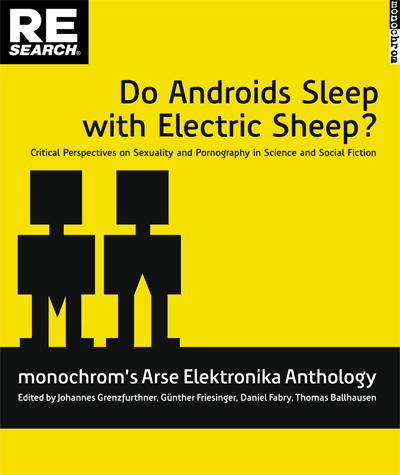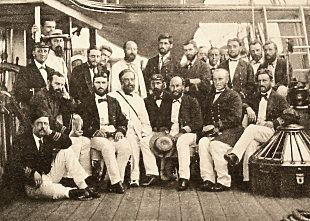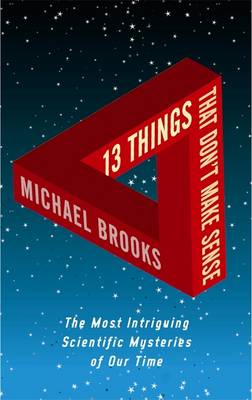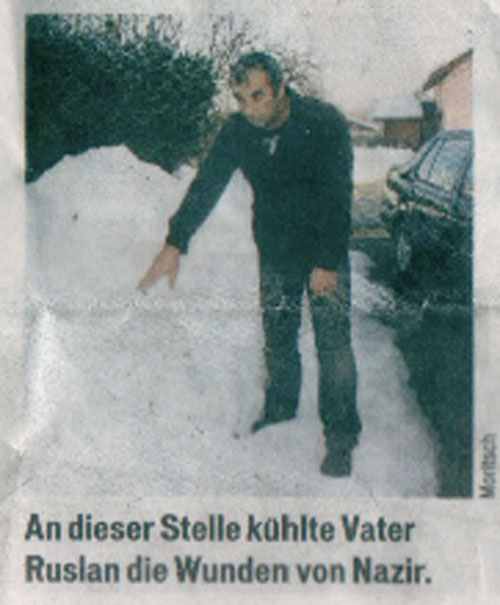In a fight against terrorism, information is everything.Link Actor, Director Tim Robbins Takes Up Historic Vietnam War Protest in Production of "The Trial of the Catonsville Nine" We end today's show with the Academy Award-winning actor, director and writer Tim Robbins. Tim is involved in a new production of Father Daniel Berrigan's acclaimed play The Trial of the Catonsville Nine.Link Britain and the Second World War: A long story Cran admits that the wartime mentality lingered in other strange ways. "I used to say, 'I'm not going to go on holiday to Germany.' Italy and France, yes, but Germany, no. My big thing was not buying a German car. When I finally bought an Audi a few years ago, I had to think about it very hard." He laughs in mild self-amazement. "So you could say my war ended in 2002."Link That Picasso Recovered In Iraq? A Fake With Spelling Mistakes Officers had said that the painting was stolen during Iraqi dictator Saddam Hussein's invasion of Kuwait in 1990, but a source at the museum in the emirate said they had never housed such a work. "The National Museum had no Picasso paintings before the Iraqi invasion," the official said on condition of anonymity. A tag on the back of the painting, one riddled with misspellings, names the work "The nakede" (sic) and says it was "sold by the louvre to the musum" (sic) of Kuwait 1979, with the words Louvre and Kuwait in lower case.
Link monochrom's Toyps: new entries   We need your errors! Link Media Multitaskers: Fail! People who are regularly bombarded with several streams of electronic information do not pay attention, control their memory or switch from one job to another as well as those who prefer to complete one task at a time, a group of Stanford researchers has found.Link We Are As Gods And Have To Get Good At It: Stewart Brand Talks About His Ecopragmatist Manifesto The shift that has happened in 40 years which mainly has to do with climate change. Forty years ago, I could say in the Whole Earth Catalog, "we are as gods, we might as well get good at it". Photographs of earth from space had that god-like perspective.Link Computing climate change: How much carbon dioxide do computers emit? Aviation has long been blamed for its share of anthropogenic global warming. Indeed, some travellers now ask themselves whether their flight is strictly necessary and, if they decide it is, salve their consciences by paying for the planting of trees. These, so they hope, will absorb the equivalent of their sinful emissions. But you, dear reader, are indulging right now in activity that is equally as polluting as air travel: using a computer.Link Do Androids Sleep with Electric Sheep? Arse Elektronika Anthology  Pre-order via RE/Search.  Taking up where the successful first part of our series left off, this anthology stands under the motto "future" -- and the ways in which the present sees itself reflected in it. Maintaining a broadened perspective on technical development and technology while also putting special emphasis on its social implementation, this year's conference focuses on Science and Social Fiction. The genre of the "fantastic" is especially well suited to the investigation of the touchy area of sexuality and pornography: actual and assumed developments are frequently depicted positively and approvingly, but just as often with dystopian admonishment. Here the classic, and continuingly valid, themes of modernism represent a clear link between the two aspects: questions of science, research and technologization are of interest, as is the complex surrounding urbanism, artificiality and control (or the loss of control). Depictions of the future, irregardless of the form they take, always address the present as well. Imaginations of the fantastic and the nightmarish give rise to a thematic overlapping of the exotic, the alienating and, of course, the pornographic/sexual as well. Edited by Johannes Grenzfurthner, Günther Friesinger, Daniel Fabry, Thomas Ballhausen. Featuring essays and stories by Rudy Rucker, Richard Kadrey, James Tiptree, Jr., Allen Stein, Sharing is Sexy, Jason Brown, Cory Doctorow, Annalee Newitz, Tina Lorenz, Reesa Brown, Karin Harrasser, Isaac Leung, Rose White, Mela Mikes, Viviane, Susan Mernit, Chris Noessel, Kit O'Connell, Jens Ohlig, Bonni Rambatan, Thomas Roche, Bonnie Ruberg, Mae Saslaw, Violet Blue, Nathan Shedroff, 23N!, Benjamin Cowden, Johannes Grenzfurthner, Daniel Fabry... Publisher: RE/Search, San Francisco. Unbelieveable! Artist Management According To Flo & Eddie Steely-Eyed Hydronauts of the Mariana On 21 December 1872, the British naval corvette HMS Challenger sailed from Portsmouth, England on an historic endeavor. Although the sophisticated steam-assisted sailing vessel had been originally constructed as a combat ship, her instruments of war had been recently removed to make room for laboratories, dredging equipment, and measuring apparatuses. She and her crew of 243 sailors and scientists set out on a long, meandering circumnavigation of the globe with orders to catalog the ocean's depth, temperature, salinity, currents, and biology at hundreds of sites–an oceanographic effort far more ambitious than any undertaken before it.  Link Rajeshree Sisodia on why Burma is a failed state George Miller talks to journalist Rajeshree Sisodia about her article "Mae Sot's unsung heroes" in the July issue of Le Monde diplomatique. They discuss the Orwellian climate of fear which prevails in the country and life in the refugee camps across the border in Thailand, home to thousands of Burmese who have fled their country. And they talk about what it will take to bring about change.
Link (Podcast) Ministry of Defeat. The British War in Iraq 2003-2009 After co-authoring four books with the Sunday Telegraph's Christopher Booker, Dr Richard North - the defence analyst behind the Defence of the Realm blog - has written a blow-by-blow account of Britain's disastrous occupation of southern Iraq, from the April 2003 invasion to the withdrawal of all combat troops earlier this year.Link The New-Media Crisis of 1949 The digital apocalypse continues to blight the lives of television producers, music-industry executives and newspaper publishers, all of whom are scrambling to figure out how to reconfigure their business models in such a way as to allow them to make an honest buck. They're trying to second-guess the future—so why not look back at the past? Today's new-media revolution, after all, is not the first time that technological change has laid waste to the best-laid plans of the old media. The same thing was happening 60 years ago.Link Unhappy Together: The Wittgenstein Family Feud They were raised in a vast marble palace in Vienna, with liveried servants, seven grand pianos, a Rodin sculpture, and frescoes depicting scenes from A Midsummer Night's Dream. Their father, a self-made millionaire and one of the leading industrialists of the Habsburg Empire, was also a deeply cultured man, an art collector who provided the funding for the Secession Building at which the "advanced" artists of the period -- Gustav Klimt, Egon Schiele, Oskar Kokoschka -- exhibited their work (Klimt referred to him as his "Minister of Fine Art"). But it was music that was Karl Wittgenstein's great passion, and that of his wife: Brahms, Mahler, Schoenberg, and Richard Strauss all attended the musical evenings in the palace's opulent Musiksaal, and the elder Wittgensteins spent many hours playing music with each other and their eight children. The conductor Bruno Walter, another attendee at those private concerts, described the "all-pervading atmosphere of humanity and culture" that prevailed in the household.Link Close Encounters of the Facial Kind: Are UFO Alien Faces an Inborn Facial Recognition Template? In vol. 11 issue 4 of Skeptic magazine, Frederick V. Malmstrom presents his hypothesis that Greys are actually residual memories of early childhood development. Malmstrom reconstructs the face of a Grey through transformation of a mother's face based on our best understanding of early childhood sensation and perception. Malmstrom's study is particularly useful in explaining away the existence of Greys, the intense instinctive response many people experience when presented an image of a Grey, and the ease of regression hypnosis and recovered memory therapy in "recovering" memories of alien abduction experiences, along with their common themes.
 Link The Origin of Zero The number zero as we know it arrived in the West circa 1200, most famously delivered by Italian mathematician Fibonacci (aka Leonardo of Pisa), who brought it, along with the rest of the Arabic numerals, back from his travels to north Africa. But the history of zero, both as a concept and a number, stretches far deeper into history—so deep, in fact, that its provenance is difficult to nail down.Link Ira Glass discloses the mysteries of good storytelling We Are the Martians: Why we've never lost our enthusiasm for space travel It was exactly 10 years ago, 1999, that the heat of a rocket ship on its way to Mars turned the dark Ohio winter into summer. The First Expedition landed men on Mars but it would be three expeditions later before the men of Earth would fully inhabit the red planet and make it their own. Eventually, they would come with their families, build homes and cities on the dead Martian sands, and create new histories that would replace their own and those of the Martian lives they destroyed.Link Inside the DSM: The Drug Barons' Campaign to Make Us All Crazy Some years ago, a friend told me that he had been diagnosed with a major depressive disorder and that his psychiatrist had given him a prescription for Forest Laboratories' popular SSRI antidepressant Celexa (chemical name, citalopram hydrobromide; $1.5 billion in sales in 2003). Knowing him to be a vociferous critic of the pharmaceutical companies, I asked whether he agreed that the origins of his unhappiness were biological in nature. He replied that he unequivocally did not. "But," he confided, "now I might be able to get my grades back up."Link "Off The Hook"/Toorcamp Special with J. Scott, Johannes G., Eddie C.  Link, Episode 2009/08/04 (mp3) What Your Choice of Words Says about Your Personality A language analysis program reveals personality, mental health and intent by counting and categorizing words.
Link It's....! Monty Python Reunion Set For This Fall "The Pythons will meet again to celebrate the 40th anniversary of the creation of the troupe on Oct. 15 at the Ziegfeld Theater in New York City. While the event will feature no cows being flung by catapult ... the reunion will involve the complete troupe" - including, we are told, the late Graham Chapman. The gathering is to launch the new documentary Monty Python: Almost the Truth (The Lawyer's Cut).Link There's more to Calvin than dourness and asceticism? This year is the five-hundredth anniversary of John Calvin's birth, but while the occasion is being marked by his followers, in the wider world the Protestant reformer is remembered with little affection. 'Calvinism' is regarded as a harsh and humourless creed, whose founder lacks even the glamour of his German counterpart Martin Luther. While the French thinker influenced Protestant churches internationally, in Britain he is mostly associated with the strict Presbyterianism once prevalent in dreich old Scotland.Link 13 Things That Don't Make Sense: The Most Intriguing Scientific Mysteries of Our Time Good piece of popular science.
 Will we ever find the ninety-six percent of the universe that is missing? Will tomorrow bring an answer to the scientific mysteries of today? While taking readers on an entertaining tour d'horizon of today's strangest scientific findings, Michael Brooks argues that the things we don't understand are the key to what we are about to discover.In 2008, science can only really account for four percent of our universe, and the rest, well, just seems to be missing. The effects of homeopathy don't go away under rigorous scientific conditions. Thirty years on, no one has an explanation for a seemingly intelligent signal received from outer space. The speed of light seems to have changed over the lifetime of the universe. The US Department of Energy is re-examining cold fusion (a nuclear reaction in which atoms release more energy than they consume) because the evidence is too solid to ignore. The placebo effect is put to work in medicine while doctors can't agree on whether it even exists...In an age when science is supposed to be king, scientists are beset by experimental results they simply cannot explain. But, if the past is anything to go by, these anomalies contain the seeds of future scientific revolutions.This mind-boggling but entirely accessible survey of the outer-limits of human knowledge is based on a short article Michael Brooks wrote for the "New Scientist" in 2005. It became the most circulated "New Scientist" feature ever. He has now dug deeply into these mysteries, and the results of his investigations point to an exciting future for scientific discovery.Link Internet 'immune system' could block viruses It is 0530 UTC, 25 January 2003. A computer worm named Slammer has just unleashed one of the most devastating attacks on the internet ever. Within minutes, it infects nearly 90 per cent of vulnerable computers. Major net links break down, ATM machines fail and airlines have to cancel flights.Link Why Yale Press Shouldn't Self-Censor Mohammed Images Why did Yale University Press remove images of Mohammed from a book about the Danish cartoons?
The Cartoons That Shook the World by Jytte Klausen.The capitulation of Yale University Press to threats that hadn't even been made yet is the latest and perhaps the worst episode in the steady surrender to religious extremism—particularly Muslim religious extremism—that is spreading across our culture. A book called The Cartoons That Shook the World, by Danish-born Jytte Klausen, who is a professor of politics at Brandeis University, tells the story of the lurid and preplanned campaign of "protest" and boycott that was orchestrated in late 2005 after the Danish newspaper Jyllands-Posten ran a competition for cartoons of the Prophet Mohammed. (The competition was itself a response to the sudden refusal of a Danish publisher to release a book for children about the life of Mohammed, lest it, too, give offense.) By the time the hysteria had been called off by those who incited it, perhaps as many as 200 people around the world had been pointlessly killed.Link How a Basic Income Program Saved a Namibian Village It sounds like a communist utopia, but a basic income program pioneered by German aid workers has helped alleviate poverty in a Nambian village. Crime is down and children can finally attend school. Only the local white farmers are unhappy.Link What do flocks of birds have in common with trust, monogamy, and even breast milk? According to a new report in the journal Science, they are regulated by virtually identical neurochemicals in the brain, known as oxytocin in mammals and mesotocin in birds.Link Monsanto's Man in the Obama Administration? Michael R. Taylor's appointment by the Obama administration to the Food and Drug Administration (FDA) on July 7th sparked immediate debate and even outrage among many food and agriculture researchers, NGOs and activists. The Vice President for Public Policy at Monsanto Corp. from 1998 until 2001, Taylor exemplifies the revolving door between the food industry and the government agencies that regulate it. He is reviled for shaping and implementing the government's favorable agricultural biotechnology policies during the Clinton administration.Link China's wild west: Ethnic conflict erupts in Beijing's 'new frontier' With July's violence in Urumqi following last year's riots in Tibet, is China under threat in its frontier provinces? Xinjiang's minorities, the Muslim Uyghurs in particular, face discrimination. Though their dislocation is more social and cultural than religious, without real autonomy Islamic fundamentalism is set to grow.
Link Soviet Unterzoegersdorf Embassy @ HAR2009: Erected!   Link (Flickr) monochrom @ Hacking at Random 2009  August 13-16, 2009; Vierhouten, NL. Link Great new "Zeigerpointer" entries! Point! Zeig! Point!  But what's a Zeigerpointer? The Zeigerpointer (a German-English word-mix tautology that we feel free to give birth to) is the most penurious form of capitulation in the print media. Various people, predominantly in local newspapers or magazines of regional interest, are forced by photographers armed with Zeiss-lenses to indicate occurrences. These people have to point at things. With their bare hands! They have to present occurrences that withdraw themselves through their absence, through optical expiration or simply the course of time. Like car wrecks that have already been recovered, asylum seekers that have fled, or burnt down buildings that were entirely consumed by the fire. Occurrences that elude the media machinery because of visual boredom or a state of simply-not-there-anymore. Well, then let's give our readers a Zeigerpointer! The Zeigerpointer shall zeigerpoint it out!  ("This is the place where father Ruslan cooled Nazir's wounds.") Link monochrom multi-yearbook: layouts wanted!  Would you be interested in helping us with laying out all the stuff? It really doesn't matter if you are into punk cut-up or high-end style, experimental freakdom or ASCII-on-bubblejet. Don't hesitate to contact us!  Reimagining A Global Law International law in a new society wouldn't exist. Allow me to explain. Let's say the goal of reimagining society is to create something that is more participatory: self managed in line with the values of parecon and parpolity. The hyperlinked writings are worth reading in their entirety to get all the details, but the basic idea is that society's basic political units are primary "nested" councils of people who make the laws; these councils are small enough that everyone can deliberate decisions (think about 40 people or so). These councils federate with each other by sending delegates to higher level councils and society is built from the bottom up. Nothing like a national centralized government exists; decisions are only made on a large scale to the extent that there is a common interest justifying taking authority away from the primary councils. Laws are made only to govern the number of people affected, irrespective of countries or national boundaries. If you don't have nations then you can't have "international" anything, including international law.Link Miniature gravity detector could peer inside planets Peering beneath the surface of Mars and other planets to reveal buried geological features could get easier, thanks to a nifty new silicon gadget.Link Tough times in the porn industry The adult entertainment business, centered in the San Fernando Valley, has weathered several recessions since it took off with the advent of home video in the 1980s. But this time the industry is not dealing with just a weakened economy. A growing abundance of free content on the Internet is undercutting consumers' willingness to pay for porn, and with it the ability of many workers to earn a living in the business.Link Is the egg is the ultimate currency of Darwinian success? It is particularly ironic that the critics have hurled all the conventional accusations at Miller, since his version of evolutionary psychology is so different from that of Steven Pinker and other key thinkers in the field. His theory, eloquently advanced in The Mating Mind (2000), that the evolution of human intelligence was shaped more by sexual selection than by natural selection, sets him apart from the mainstream. In this book Miller advances an equally original thesis - that our purchases are driven by the desire to display personality traits that have been shaped by our evolutionary history. When viewed through this lens, puzzling aspects of consumer behaviour suddenly make sense.Link Fake Histories Of The World (And Who Reads Them) How to fake science, history and religion. An investigation into the invented histories of Atlantis, pre-Ice Age civilizations and cosmic catastrophes.
What is striking about pseudo-histories and sciences is how repetitive they are and, despite their extravagant speculations, how limited their visions are. They are mechanical and lack the éclat - the surprises - of science and history. What is their allure? What are the circumstances of their rise and fall? What is - and was - their audience?Link 1.6 per cent? Restating the case for human uniqueness A brilliant new book cuts through all the media-oriented research about 'clever chimps' using tools, doing maths and feeling emotions, and reminds us that, in truth, there is nothing remotely human about primates.
Not a Chimp: The Hunt to Find the Genes That Make Us Human is a refreshing defence of human uniqueness. 'We are a truly exceptional primate with minds that are genuinely discontinuous to other animals', Jeremy Taylor writes.Link Hiroshima Day: America Has Been Asleep at the Wheel for 64 Years It was a hot August day in Detroit. I was standing on a street corner downtown, looking at the front page of The Detroit News in a news rack. I remember a streetcar rattling by on the tracks as I read the headline: A single American bomb had destroyed a Japanese city. My first thought was that I knew exactly what that bomb was. It was the U-235 bomb we had discussed in school and written papers about, the previous fall.Link Reducing Energy Inputs in the Agricultural Production System Oil, natural gas, coal, and other mined fuels provide the United States with nearly all of its energy needs at a cost $700 billion per year. Since more than 90 percent of its oil deposits have been depleted, the United States now imports over 70 percent of its oil at an annual cost of $400 billion. United States agriculture is driven almost entirely by these non-renewable energy sources. Each person in the country on a per capita consumption basis requires approximately 2,000 liters per year in oil equivalents to supply his/her total food, which accounts for about 19 percent of the total national energy use. Farming—that portion of the agricultural/food system in which food is produced—requires about 7 percent and food processing and packaging consume an additional 7 percent, while transportation and preparation use 5 percent of total energy in the United States.Link John Hughes, 'The Steven Spielberg Of Youth Comedy,' Dies At 59 Richard Corliss: "Hughes generated successful movie-comedy franchises as fast as other people wrote postcards. First the National Lampoon Vacation films ... Then the teen movies" - Sixteen Candles, The Breakfast Club, Pretty in Pink, Ferris Bueller's Day Off - "not strictly a series but with more or less the same rep company of kids. And then the blockbuster Home Alone" and its sequels. (Not to mention the movies about Beethoven the enormous dog, written under a pseudonym.)Link Winning the ultimate battle: How humans could end war Optimists called the first world war "the war to end all wars". Philosopher George Santayana demurred. In its aftermath he declared: "Only the dead have seen the end of war". History has proved him right, of course. What's more, today virtually nobody believes that humankind will ever transcend the violence and bloodshed of warfare. I know this because for years I have conducted numerous surveys asking people if they think war is inevitable. Whether male or female, liberal or conservative, old or young, most people believe it is. For example, when I asked students at my university "Will humans ever stop fighting wars?" more than 90 per cent answered "No". Many justified their assertion by adding that war is "part of human nature" or "in our genes". But is it really?Link Out-of-body experiences help bring avatars to life The dream of many of paralysed people, computer-game designers – and pornographers – is one step closer to reality with the demonstration of a technique that allows people to physically identify with a virtual body.Link Adventures in a megacity: Sorrows of the house of Oudh The forests of the Ridge are a lung to Delhi. From here, this enormous city, one of the most populous in the world, is invisible, inaudible. The Ridge is uninhabited, almost. For hidden away in a thick jungle of keekar and babul trees are two very different buildings, just 20 metres apart. A satellite ground station next to a ruined hunting lodge, built more than six hundred years ago. The former is bristling with modernity, large dishes, CCTV and high-security defences. However, the inhabitants of the decrepit Malcha Mahal take their security even more seriously. Next to a footpath to the building is a rusted metal signboard that declares:Link monochrom @ PlumberCon 2009  monochrom @ Journey to the End of the Night: Vienna  Link [The Archives] 
. . . . . |
. . monochrom is an art-technology-philosophy group having its seat in Vienna and Zeta Draconis. monochrom is an unpeculiar mixture of proto-aesthetic fringe work, pop attitude, subcultural science, context hacking and political activism. Our mission is conducted everywhere, but first and foremost in culture-archeological digs into the seats (and pockets) of ideology and entertainment. monochrom has existed in this (and almost every other) form since 1993.
[more] Booking monochrom: [Europe] [USA] External monochrom links: [monochrom Wikipedia] [monochrom Flickr] [monochrom blip.tv] [monochrom GV] [monochrom Youtube] [monochrom Facebook] [monochrom iTunes] [monochrom Twitter] 
[ P r o j e c t s ] Soviet Unterzoegersdorf / Sector 2 / The Adventure Game Krach der Roboter: Hello World! Slacking is killing the DIY industry (T-Shirt) Carefully Selected Moments / CD, LP Freedom is a whore of a word (T-Shirt) International Year of Polytheism 2007 Santa Claus Vs. Christkindl: A Mobster Battle Kiki and Bubu and The Shift / Short film Kiki and Bubu and The Privilege / Short film Kiki and Bubu and The Self / Short film Kiki and Bubu and The Good Plan / Short film Kiki and Bubu and The Feelings / Short film / Short film Soviet Unterzoegersdorf / Sector 1 / The Adventure Game I was a copyright infringement in a previous life (T-Shirt) Firing Squad Euro2008 Intervention I can count every star in the heavens above -- The image of computers in popular music All Tomorrow's Condensations / Puppet show The Redro Loitzl Story / Short film Law and Second Order (T-Shirt) They really kicked you out of the Situationist International? When I was asked to write about new economy Arse Elektronika 2007, 2008, 2009 etc. The Void's Foaming Ebb / Short film The Charcoal Burner / Short film Fieldrecording in Sankt Wechselberg / Short film Campaign For The Abolition Of Personal Pronouns Entertainment (Unterhaltung) / Short film Nicholas Negroponte Memorial Cable Experience the Experience! (West Coast USA/Canada Tour 2005) A Holiday in Soviet Unterzoegersdorf Massive Multiplayer Thumb-Wrestling Network Soviet Unterzoegersdorf Metroblogging Every Five Seconds an Inkjet Printer Dies Somewhere 452 x 157 cm² global durability Blattoptera / Art for Cockroaches An attempt to emulate an attempt The Department for Criticism against Globalisation Disney vs. Chrusov / Short film Turning Threshold Countries Into Plows Roböxotica // Festival for Cocktail-Robotics Cracked Foundation For The Fine Arts Oh my God, they use a history which repeats itself! (T-Shirt) Administrating:  . . . . . |
|||
